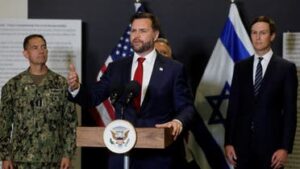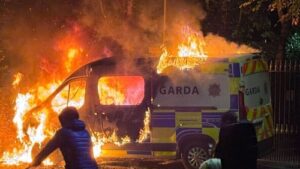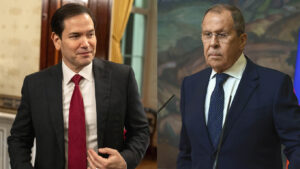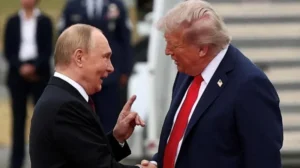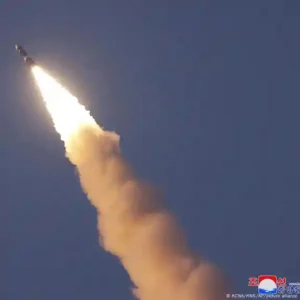As Israel’s brutal operation against Hamas in Gaza approached its one-year anniversary, US President Joe Biden renewed his call for a ceasefire in Gaza in his final speech to the UN General Assembly, cautioning against a “full-scale” war in Lebanon.
“A full-scale conflict is not beneficial for anyone,” Biden stated to the UN General Assembly following over 550 fatalities from Israeli airstrikes in Lebanon that were directed at Hezbollah.
Speaking before the international body gave Biden one of his final high-profile platforms as president to argue for continued strong support for Ukraine, which may be called into question if former President Donald Trump—who has mocked the war’s costs—begins to lose to Vice President Kamala Harris in November. Nevertheless, Biden maintained that he is optimistic about the future despite the world’s conflicts.
During his extensive speech, Biden called for an end to the civil war in Sudan, which has resulted in a serious humanitarian crisis, and urged nations to cease arming opposing generals there.
Biden’s words echoed those of UN Secretary-General Antonio Guterres who earlier on Tuesday warned world leaders that impunity, inequality and uncertainty are creating an “unsustainable world” where a growing number of countries believe they should have a “get out of jail free” card.
He declared, “We can not go on like this,” as the yearly discussion among presidents, prime ministers, kings, and other world leaders got underway at the General Assembly.He claimed that humanity is “edging towards the unimaginable – a powder keg that risks engulfing the world,” citing growing geopolitical divisions, unending wars, climate change, and nuclear and emerging weapons.
However, if the international community addresses the uncertainty of unmanaged risks, the inequality that underlies injustices and grievances, and the impunity that undercuts international law and the UN’s founding principles, he claimed, “the challenges we face are solvable.”
“Today, a growing number of governments and others feel entitled to a “get out of jail free’ card,” he said in a reference to the classic board game Monopoly.
Under the shadow of deepening global divisions, significant conflicts in Gaza, Ukraine, and Sudan, and the possibility of an even bigger conflict in the broader Middle East, the world leaders’ meeting began.
Guterres previewed his opening speech at Sunday’s “Summit of the Future,” where he pointed to conflicts from the Middle East to Ukraine and Sudan and to the global security system, which he said is “threatened by geopolitical divides, nuclear posturing, and the development of new weapons and theatres of war.”
He also mentioned the severe effects of climate change, the enormous disparities in wealth, and the absence of an efficient worldwide system to address new and even existential threats.
On the first day of events, there are also scheduled speeches by King Abdullah II of Jordan, President Luiz Inacio Lula da Silva of Brazil, President Recep Tayyip Erdogan of Turkey, and President Masoud Pezeshkian of Iran.
The Iranian leader accused Israel on Monday of seeking a wider war in the Middle East and laying “traps” to lead his country into a broader conflict. He pointed to the deadly explosions of pagers, walkie-talkies and other electronic devices in Lebanon last week, which he blamed on Israel, and the assassination of Hamas’ political leader Ismail Haniyeh in Tehran on July 31, hours after Pezeshkian’s inauguration.
“We are not looking to fight,” declared the president of Iran. Israel is the one attempting to incite conflict and destabilize the area. They are dragging us to a point where we do not wish to go.” Iran backs Hezbollah militants in Lebanon as well as Hamas in Gaza.
President David Miliband of the International Rescue Committee recalled that US President Harry Truman, at the 1945 San Francisco conference that established the UN, pleaded with delegates to reject the idea that “might makes right” and replace it with the UN Charter’s tenet of “right makes might.”
